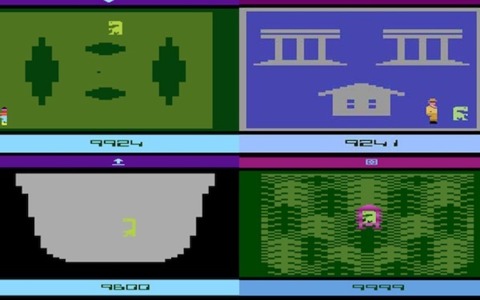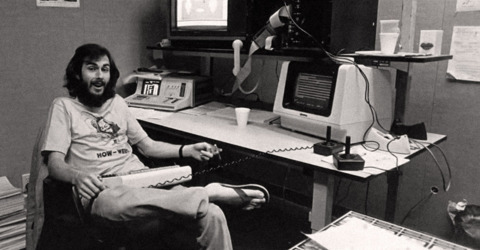Howard Warshaw and his E.T. Misdeed - Did He Really Destroy an Entire Industry?
By Pacario 0 Comments
Howard Scott Warshaw—he’s the man who created such beloved Atari 2600 games as Yar’s Revenge and Raiders of the Lost Ark. He’s also the dude who programmed E.T. the Extra-Terrestrial, a subpar 2600 adaptation of the 1983 film that many credit for destroying the early ‘80s gaming market. Warshaw has been outspoken about his ignominious role in all of this, resenting the prominent disgrace he’s endured while still trying to laugh it off at the same time. But the question remains: Is the infamy deserved? Did his poorly-conceived E.T. bring about the 1983 video game crash?

Well, the winds of shame have indeed shifted over time. Some revisionists now defend the downtrodden designer, describing E.T. not as a misguided cash-grab, but rather a misunderstood but admirable attempt at distilling the movie’s basic plot points into the already antiquated Atari 2600 hardware. But...is this true? Has poor Warshaw been unfairly singled-out and maligned?
Yes and no. E.T. isn’t so much a terrible game as it was the wrong type of game to represent such a timeless, heartfelt film. Few kids, waking up Christmas Morning 1983, would appreciate the supposed “ambition” hiding behind E.T.’s plodding gameplay and somewhat cryptic design. Even Steven Spielberg, the maestro behind the movie, had envisioned the game to be more akin to a Pac-Man-clone that what Warshaw actually delivered.
But…yes, the game isn’t the worst title in history. It’s not even the worst game of its generation. It’s simply a mediocre film-licensed title that was rushed to market and, due to its popular namesake, became the symbol of everything toxic and wrong with the early ‘80s gaming industry. And there was a lot wrong—gluts of titles, mostly bad, pouring out from numerous, sometimes shady companies, plus poor planning, wasteful business practices, antiquated hardware, employee/designer disregard, and greed. Pure, ageless greed.

And unfortunately, Warshaw isn’t guiltless on this last point; far from being the poor Atari worker forced to work on this rushed take on E.T., he gladly took on the project. Why? Money. He got paid $200,000 for five weeks of work which, in today’s cash, amounts to almost $600,000. And that’s before one counts the alleged royalties he also received, although the particulars on these are unclear. In short, whether he deserves his infamy or not, he got paid extremely well for his services. And all by his choice.
If only we could all be so lucky in our unfortunate choices…
Anyone wanting to delve more into this nifty piece of gaming history can check out my podcast, which touches on this topic in more detail.
Thanks to Ain't it Cool News and Den of Geek for offering these images.
